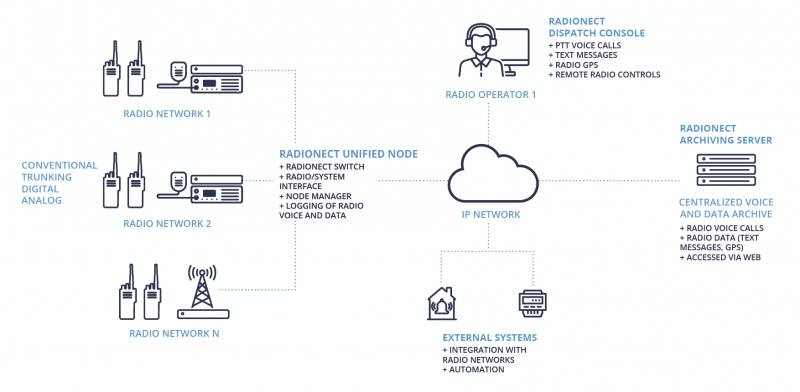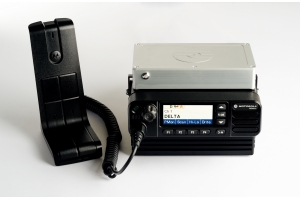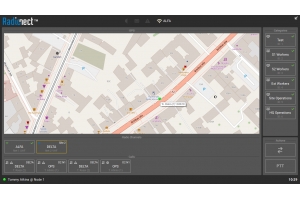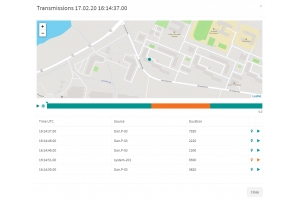
Radio Communication System

Radio Communication System
+ Complements сonventional and trunking radio systems;
+ Works with analog and digital radio channels;
+ Flexibility of deployment, fits for smaller and larger systems;
+ Decentralized architecture, no single point of failure.
Businesses and organizations in the variety of verticals can get the following benefits deploying Radionect with their radio networks and systems: PERSONNEL SAFETY, COSTS SAVINGS, HIGHER EFFICIENCY, PROACTIVE MAINTENANCE.
Edge gateways for integration of legacy two-way radios with IP technology. RUNs contain the fully capable switching engine and can be deployed in standalone or networked scenarios with no single point of failure. Network of RUNs enables uniting in one common radio communication space disparate radio networks situated in multiple locations, deployed in multiple frequency channels and bands, and working in analog or digital modes. RUNs log voice and data information from two-way radios to the embedded memory. The logged information can be reviewed on a per node basis archived to the centralized vault.
Software tools or specifically tailored hardware appliances for real-time communications over remote and geographically dispersed two-way radio networks. Dispatchers and supervisors from their working locations can monitor and call radio channels, send and receive radio text messages, increase situational awareness by observing current locations of vehicles and personnel on digital maps in case of GPS-enabled radios in the field and receiving alarms from radio users in case of incidents.
Radionect Archiving Server is a centralized vault for keeping voice and data messages, which are transmitted over two-way radios and handled by multiple Radionect Unified Nodes (RUNs). The historical archive vault is accessible by authorized users using standard internet browsers. The archived information can be searched by specific day and time, communication source, destination, type of messages, logging device, etc. If selected, voice calls can be replayed using a handy embedded web-player, which displays all associated information such as time, identifiers of talking and destination parties and if available, last known Global Positioning System (GPS) locations of talkers. If authorized, the users can download audio files of selected voice calls to a local computer for further analysis or emailing.

Radio Unified Node

Radio Dispatch Application

Radio Voice Recording System